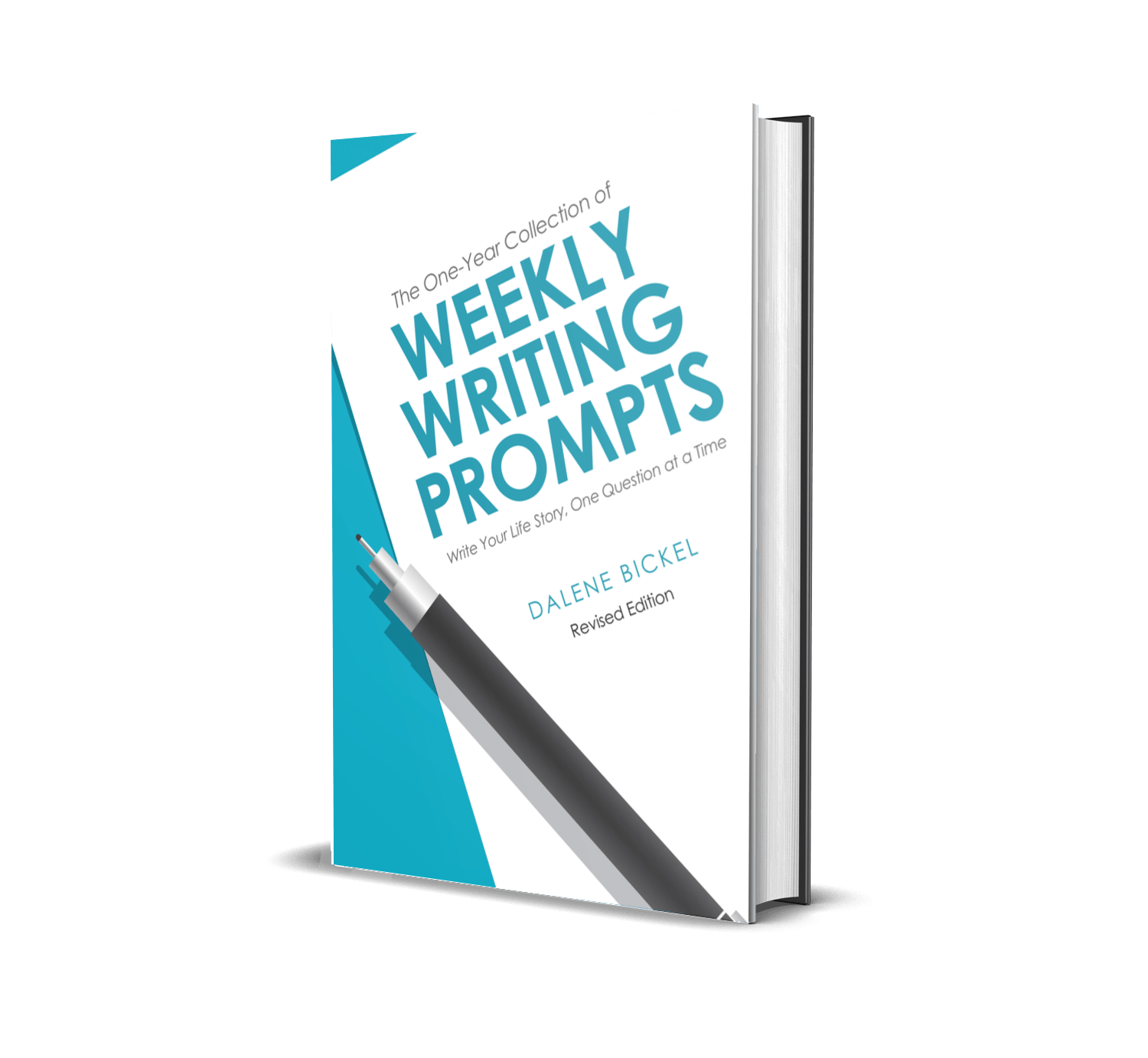Author Becca Wierwille recently joined me on the Ink and Impact podcast to discuss how to utilize personal experience in fiction writing – and why it matters. Keep reading to discover practical tips and encouragement to guide you through the process of incorporating your own personal experiences into your story.
About Becca Wierwille
Becca writes stories to show kids they are wonderfully created for the unique adventures in their lives. Born with only half of her right arm Becca aims to help others find beauty and what makes them extraordinary. Connect with her at her website or on Facebook and Instagram.
Becca’s Book, Road Trip Rescue (*affiliate link)
Benefit #1: Develop the Back Story
Becca:
When I wrote the first draft of Road Trip Rescue – the story of a twelve-year-old girl named Kimmy and she goes off on a road trip in search of her long lost dog – and I was crafting Kimmy’s character, I found myself reflecting on questions that I might have asked when I was that age and the anxieties that I had. But when I wrote the first draft, Kimmy did not share the biggest thing in common with me, which is the limb difference. My arm – and now Kimmy’s arm – ends right below the elbow.
In the first draft, she did not have a limb difference. But after I finished that draft, I realized she needed a really compelling reason that she wanted to go after this dog. The dog had to matter a lot to her; there had to be some sort of backstory that met made its rescue important.
I began to think about my own childhood and how there were times when I felt like I could trust my dog more than I could trust people. Even if my dog could have talked, she never would have said anything bad about my arm or about me in general. Dogs love us so wholeheartedly.
So I thought, what if Kimmy also had a limb difference? And what if a friend betrayed her? I never had a friend betray me in the same way as what happened to Kimmy, but as I started to think about that, it made sense why this dog would matter so much to her.
Adding in that limb difference came as I was revising. It was really cool to then be able to put even more of my personal experience in my fiction writing.
Benefit #2: Spark Meaningful Conversations
Dalene:
Especially in fiction, we need to stop and think about what the reader is going to get out of the story. Will they make a connection with the characters?
Having that compelling limb difference is going to cause a lot of readers to sit up and take notice. I know in my circle, I’m not familiar with people with limb differences, so I think this is opening up a really great conversation for a lot of people.
Becca:
Yeah, there’s not a whole lot of stories out there that feature a character with a limb difference. When I was growing up, I didn’t see that a lot. So I always had it in the back of my mind that this would be a fun story to write.
But then for people outside of this community, and even for people who I know who have grown up with me, it’s a unique way for them to get an insight toward some of the thoughts that might be going on in the mind of someone who has a limb difference or another physical difference.
Benefit #3: Resonate with Your Readers
Becca:
And then beyond that, there are universal feelings that go along with our unique personal experiences. So Kimmy has these feelings of loss related to Bo, her dog, and then also these feelings of loneliness related to her limb difference and feeling different from those around her.
Yet even for readers who don’t have a limb difference or a physical difference, they probably can relate on some level to her loneliness and to the way she feels different and insecure.
When we can take our own experiences that feel so visceral and unique to us and put them into our story, we actually create potentially stronger connection points for our readers because those underlying feelings of loss and loneliness become more vivid in a lot of ways.
Benefit #4: Your Personal Experience in Fiction Writing Can Bring Glory to God
Becca:
One of my favorite emails I’ve ever gotten was from a girl who read it shortly after she had to rehome her cat. So off the bat, she said she was really relating to Kimmy’s feelings of loneliness and realized that God was with her all the way through. That touched my heart so much.
Honestly, I’m amazed at how God can use our fictional stories to reach the hearts of readers, wherever they are. Different readers go through different things, but our books can meet them right where they are.
Probably all of my reviews are from either the parents and grandparents, whoever was reading it with their kids. I’ve received comments about how the book help their kids feel seen and loved, challenging them to think about how they react to people and situations around them. And learning to be a good friend and trusting God and caring less about what other people think.
How to Incorporate Your Personal Experience in Fiction Writing
- Invite God into the process and ask Him to show you experiences in your life that you might use in a fictional story. If we do it on our own, it’s just it’s not going to go anywhere.
- Pray about how your experiences might bring hope to the lives of others. So often, we can have an experience or an emotion that makes us feel really isolated. If we can bring similar experiences to life through a fictional story, a reader might not feel so isolated anymore.
- Make sure your character has its own story separate from your own. A danger in writing fiction can be to have all the characters be very much like yourself, and then it tends to feel like all the characters sound alike, which can be irritating to the reader. Make sure they’re different and unique, and have their own stories.
- Add in hints of your own experience, whether that’s anxiety or loss, or whatever it is. It’s fun for me to be able to talk to readers and say, “Okay, these are ways that Kimmy and I share in common with our stories. And these are things that are different.”
Your Book Can Make an Impact
Dalene
These have all been fabulous tips and encouragement and wonderful reminders about the goodness of God and how faithful he is when we turn to Him in our writing and in every aspect of our life, of course. But as writers and authors, creating books is such a privilege. Through them we are able to reach so many people that we might not ever know personally
God has given us a calling to share His Word, share the Gospel, share His truths to others. And we all have slightly different ways of doing that. You’re writing middle grade fiction. I’m currently writing historical fiction. One’s not better than the other because we’re all working together collectively as Christian writers to proclaim the good news and to write for His glory. I just think that’s such a blessing. And it’s exciting to see what He’s doing.
Before we close, what is one book that has really impacted you in your life, either as a child or as an adult?
Becca:
I actually have two books, if you don’t mind. One of them is nonfiction, so it’s an example of someone who chose to share their story through memoir, which is Soul Surfer by Bethany Hamilton (affiliate link). It’s the story of when she lost her arm in a shark attack when she was thirteen. Her story … it was a gift of seeing someone else who had one arm. I was born with a limb different; she lost hers later so it’s a very different thing, but it’s a gift to be able to see ourselves in some way in someone else’s story. Her vulnerability and the fact that she was able to share a lot of what happened in a really beautiful way on the other side of it was really cool to see. It was an example of courage that impacted me; I still think about it a lot now.
The other book is You Are Special by Max Lucado (affiliate link). It’s a picture book and I love the way it reminds us where to look for our worth, where to find our identity. It reminds me of how God created all of us, so uniquely, so wonderfully, and it’s just an amazing gift.
Takeaways
Becca shared several gold nuggets regarding the benefits of using personal experience in fiction writing, but three of my biggest takeaways were:
- Put God first and center. Seek God’s guidance and give Him the glory for all that is going on in your writing life.
- Write those messy first drafts; get experience writing. Then let it sit awhile before coming back to it. Do (and say) what God is calling you to do.
- Surround yourself with a community of Christian writers, whether that’s a virtual or in-person community. I couldn’t agree with that more!
Community has benefited my own writing in many ways: encouragement, support, friendships information. It’s all a beautiful reminder of how God puts people together to build up his kingdom.
If you are searching for a virtual community, I invite you to join The Inkwell to participate in eight writing sessions and one craft chat every month.










0 Comments